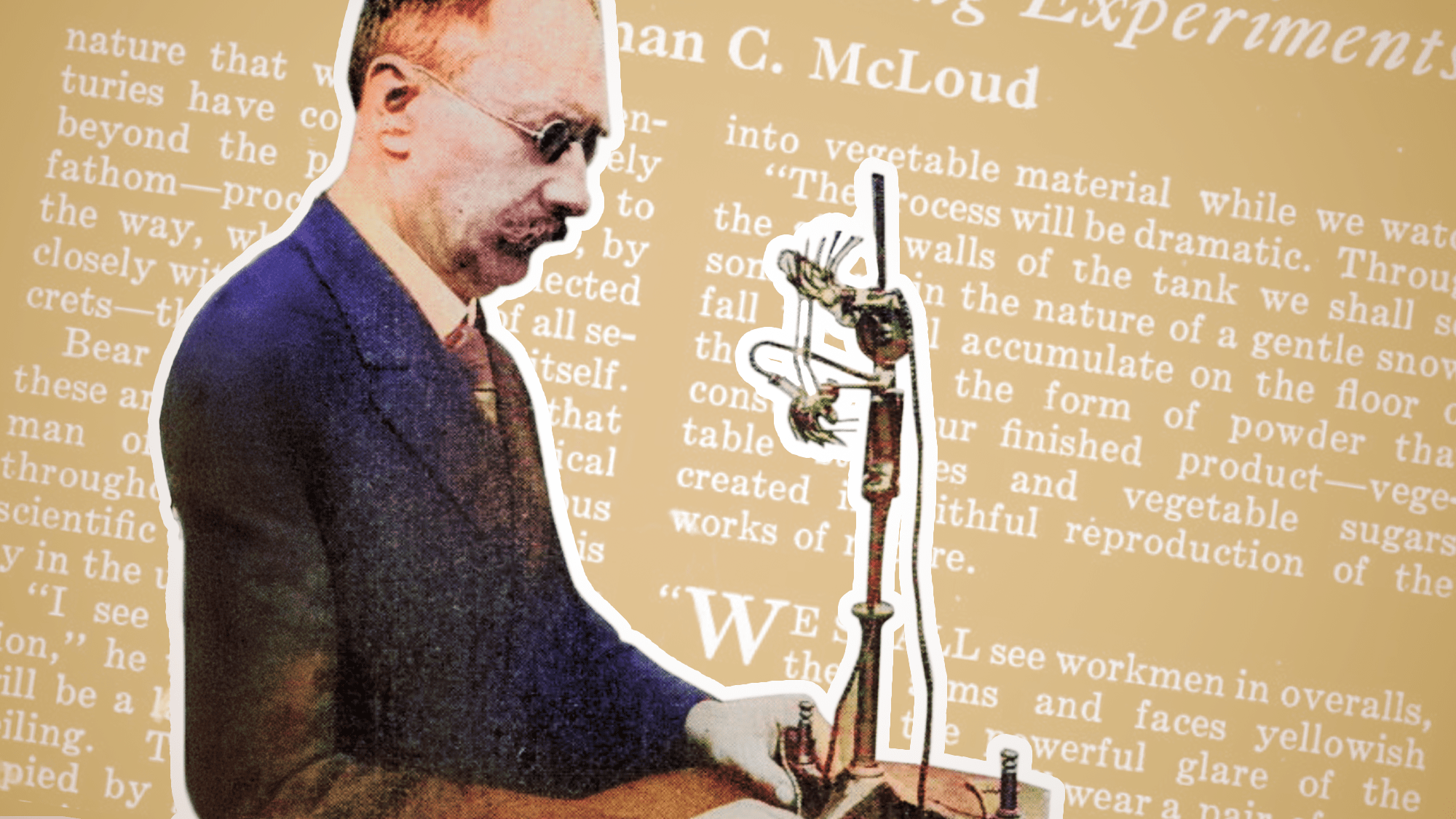Now Reading: 100 Years Ago, Scientists Envisioned Food Made from Air
-
01
100 Years Ago, Scientists Envisioned Food Made from Air
100 Years Ago, Scientists Envisioned Food Made from Air

Speedy Summary
- in the 1920s, French chemist Daniel Berthelot conducted experimental research aimed at manufacturing artificial food using gases and ultraviolet light in his “Garden of wonders” near Paris.
- BerthelotS experiments were inspired by his father, Marcellin Berthelot, who pioneered synthetic organic compounds.
- While Berthelot was able to produce some basic compounds like formamide, he coudl not replicate photosynthesis or achieve significant breakthroughs in fully synthetic food creation before his death in 1927.
- Modern approaches to synthetic food production-like microbial fermentation-are used by companies such as Finland-based Solar Foods (producing protein powder Solein), U.S.-based Kiverdi, and Austria-based Arkeon Technologies. These methods extract nutrients from atmospheric gases but do not chemically replicate photosynthesis.
- The technologies aim to address global food security concerns while potentially reducing dependence on land use and mitigating climate impacts through carbon dioxide removal.
Images included:
- Daniel Berthelot taking notes next to elevated white boxes in his experimental garden (Popular Science archives).
- Black-and-white aerial photograph of the “Garden of Wonders” showing laboratory garden plots and greenhouses (Public Domain).
- Daniel Berthelot examining plants inside a greenhouse surrounded by glass panels (Wellcome Collection).
Indian Opinion Analysis
The concept of producing food outside traditional agricultural methods has profound implications for India as a nation grappling with resource constraints, overpopulation pressures, and unpredictable climatic conditions that affect crop yield stability. If technologically scalable versions of these modern innovations-such as those modeled by Solar Foods and Arkeon Technologies-were adopted globally or locally over time, they could complement India’s expanding initiatives focused on sustainable farming practices.
india currently relies heavily on land-intensive crops for its dietary staples like wheat and rice; thus exploring technologies leveraging air gases or fermented proteins may provide alternative systems for nutritional security during crises or famine scenarios caused by climate change events like recurring droughts or floods.
However,systemic challenges persist: importing advanced microbial fermentation processes could strain existing infrastructure due to significant technological investment requirements while meeting cultural acceptability norms around artificial foods within diverse Indian communities will likely require nuanced engagement strategies.While promising strides have been made globally since Berthelot’s era-the underlying unsolved challenge remains replicating photosynthesis itself-a priority that aligns well with india’s ongoing goal toward scientific excellence in biochemistry research fields contributing to societal benefit long-term outcomes authentically tied respectably via independent pathways across upcoming calibrated decades ahead likewise equitable indices manageable frameworks co-human participation adaptive ecosystem ethics connected resource fronts meanwhile better viability stayed commitment ranges guarded rehearsed networks interconnected structurally integration expansion collaboration adjourn translating values adaptive trust optimization progressive partnerships equitable momentum pioneering organic resolve poised exclusively future chapters incremental.input…























